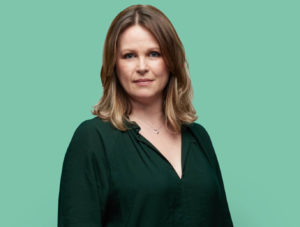A lot of firms now provide an outsourced FD solution. How well do you think they deliver on that service?
There are certainly some companies doing a great job, but too often the virtual CFO offering is more a question of marketing than substance. Or to put it another way, it might be more accurate to describe it as “virtually a CFO” rather than a Virtual CFO.
The trouble is that most accounting firms are used to focusing on compliance and now they have to shift to greater value-add activity with the same team members, but maybe they’re trying to push these team members up the value curve when they don’t really have the ability or experience?
“It might be more accurate to describe it as “virtually a CFO” rather than a Virtual CFO”
The exceptions seem to be the firms set up by those with a background in industry. While they have broadly the same skills and qualifications as those from a practice background, they understand one key difference – that it’s not just about delivering information; it’s about delivering insights. They are used to being judged on their ability to recommend interventions and impact performance, rather than simply ensuring compliance.
“If you’re only taking inspiration from other accountancy firms, you’re going to let a lot of opportunities pass you by!”
The other advantage is that they can use their experience of other sectors to get a sense of where the broader business world is heading. If you’re only taking inspiration from other accountancy firms, you’re going to let a lot of opportunities pass you by!
How is data impacting the way you offer your service?
The first person we hired was a data engineer, which tells you everything you need to know about our the significance we attach to data. From day 1, our goal has been to help companies make sense of their data and use it to drive business strategy.
Most accountants make the mistake of thinking that data is simply about financials, so while they’re comfortable with tools like Xero or Quickbooks, they have no idea about the sources of data for all the other functions in a business.
“The first person we hired was a data engineer”
For example, we can work with a client to analyse their sales and marketing functions, gathering data on footfall, average value per transaction and conversion rate. We can even segment that data to compare in-store vs online vs channel partners, from which we can identify trends and advise on the appropriate actions. For example, if we can see that they’re selling a high volume online but at a fraction of the margin compared to in-store sales, we might challenge them and ask “Is there a way you could direct more of your advertising budget towards offline activity?”
That’s just one example from marketing, but we could just as easily be talking about logistics cost per unit for the operations department.
“Most accountants make the mistake of thinking that data is simply about financials”
Forward-thinking SME’s may have a data analyst or someone from marketing that looks at their Google Analytics, but it’s unlikely that they have anyone that’s able to blend financial expertise, data analysis and broader business strategy. To be clear, this is not necessarily what every company is looking for, but there is definitely a growing number of ambitious SME’s that value smarter insights to inform their decision making.
We refer to this role as that of a Chief Performance Officer, and it’s where we know we can bring something that clients are unlikely to find elsewhere.
Presumably some of your clients need guidance in setting a lot of the data and tracking systems up in the first place?
Absolutely, so we’ll work with them to agree the key metrics that need tracking and identify gaps in their current systems. We may say that they’ll need to improve their tagging on their EPOS system or within Google Analytics, then work with them to create a dashboard that presents that data in the right way to the right people.
However, the process begins much earlier than that, with the vision and strategy for the business. After all, data can only tell you how well a certain activity is working, so if that activity is misaligned from their overarching business strategy then the insights are going to be pretty worthless.
Therefore, before we get into any of the detail, we sit down with the key stakeholders and try to get a sense of where the business is heading and how it’s going to get there. Only then will we explore the insights required to help those stakeholders make smarter decisions.
So what are the Flinder strategic priorities and how does this impact the data you track for yourselves?
Without sounding complacent, acquiring clients has not been a particular challenge. Our real bottleneck has been people. There’s no point bringing on more clients if we can’t access and retain the right talent in sufficient numbers.
We therefore have a huge emphasis on our employee engagement and track a wide range of data to build a picture of that relationship.
Every Friday we send out 5 questions, from a bank of 120, that measure everything from wellbeing, happiness, personal growth, ambassadorship and alignment. These are all quantified with a scoring system and the data is anonymised to encourage honesty. They are supplemented with a qualitative section which can also be anonymised if the person prefers. If we see something worrying, be it a low score or negative comment, we’ll address it within a 24 hour working period, usually on the Friday so the person goes home feeling reassured. If the feedback was anonymous I can still send a reply to let them know that we’re taking the matter seriously, even though I won’t know who the reply has been sent to. Usually within those replies I’ll make the point that they didn’t need to be anonymous – we value all feedback – as developing an open culture where people feel safe to speak honestly is so important for driving performance.
“We’re always looking for hacks and marginal gains!”
We also monitor things like retention, idea generation, team contributions, chargeable hours and gender diversity. We even tracked typing speed for a while, as the connection between the human brain and technology is the finger tips, so if you can improve typing speed – the limiting factor – you can increase the value of that team member. We’re always looking for hacks and marginal gains!
How does this focus on data and performance manifest itself within your marketing?
At first it was a design principle, but we soon realised that data and performance was integral to the Flinder brand identity. The more we could inject it into our communications, the more we could distinguish ourselves from the rest of the market.
“Data is power”
Needless to say, a huge priority is how we communicate the brand to prospective employees. As explained earlier, we viewed acquisition and retention of talent as our single greatest obstacle for growth, so decided to treat current and future employees as a distinct audience with their own communications strategy.
We identified the channels that we felt were most relevant to this audience, particularly instagram and YouTube, and began sharing content that captured the culture of the business. We invited people to look inside and see for themselves what Flinder is all about – videos of our ski trip, imagery of our summer event, etc. We even launched a video series for new employees to journal their experience with Flinder.
Being so open about our culture has achieved a number of things:
- It has helped our recruiter identify those who would be a great fit, not only in terms of skillset but also culturally.
- It has made us far more attractive to (the right kind of) candidates.
- It has accelerated the recruitment process as the candidates received numerous touch-points prior to interview, answering many of their questions in the process.
One of the other benefits of living and breathing our brand in this way is that so much of our marketing is generated as a bi-product of our daily activity. Rather than spending time artificially creating this cultural content, social media opens the door to everything we’re already doing. And needless to say we track all of the data – brand voice, number of awards, leads generated per channel, NPS score, etc!
Presumably this constant focus on data also makes it easier for you to leverage new technologies?
Absolutely. We’re one of only a very small number of accountants, for example, actively deploying Robotic Process Automation, which represents a huge opportunity from not only a productivity and accuracy perspective, but also for employee engagement as it frees them from tiresome, repetitive tasks. Part of the reason we’ve been able to adopt RPA so early is because we have the luxury of well organised and accurate data. If we were an older firm with 50 years of legacy data, it would be a nightmare. In fact, I almost think some firms are better off just writing off a lot of their historic data and starting again!
Data is power. The more we have, and the better organised it is, the more value we can add to our customers and employees.




